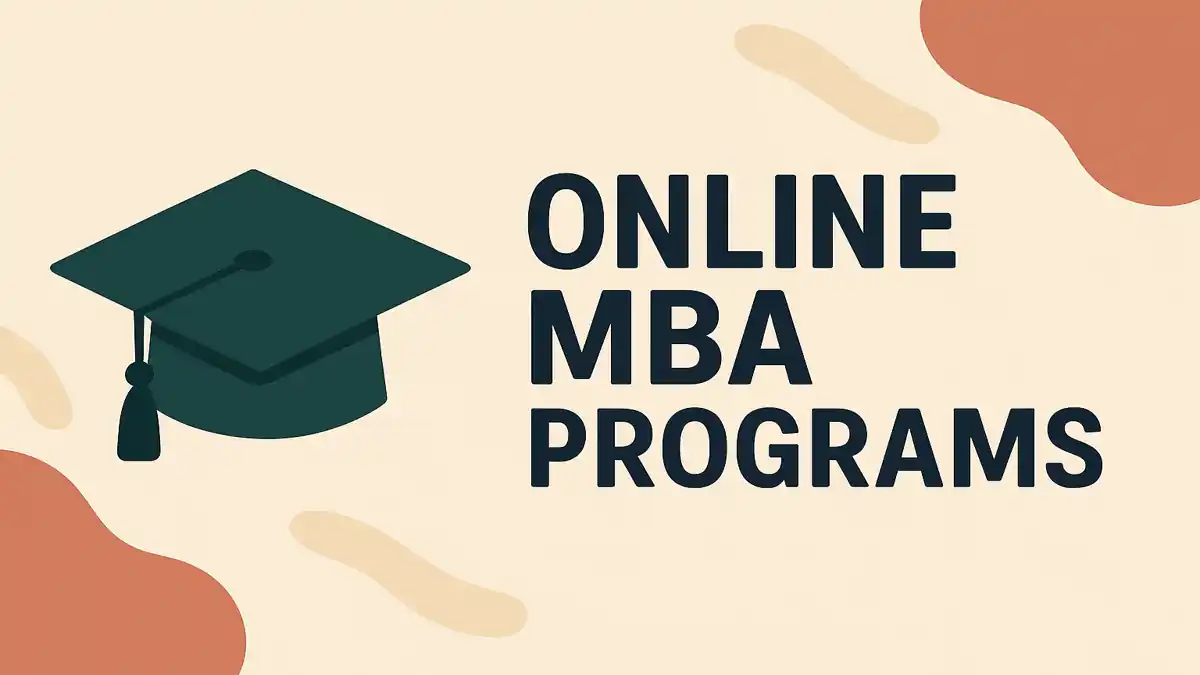Eiffel Excellence Scholarship Programme 2025: Your Ultimate Guide to Studying in France
Dreaming of studying in France, a global hub of culture, innovation, and education? The Eiffel Excellence Scholarship Programme offers a golden opportunity for ambitious international students to pursue Master’s and PhD degrees at some of the top French institutions. Established by the French Ministry for Europe and Foreign Affairs, this prestigious scholarship attracts talent from around the world, fostering academic excellence and global collaboration.
In this comprehensive guide, we’ll explore everything you need to know about the Eiffel Scholarship 2025, including eligibility criteria, benefits, application steps, and tips for success. Whether you’re researching “Eiffel Excellence Scholarship eligibility” or “how to study in France with a scholarship,” this article has you covered. Let’s dive in and discover how this program can shape your future!
What Is the Eiffel Excellence Scholarship Programme?
Launched in 1999, the Eiffel Excellence Scholarship Programme is a flagship initiative by the French government to attract exceptional international students. Administered by Campus France, it supports Master’s and PhD candidates in fields like engineering, law, economics, and political science. The program aims to train future global leaders while promoting France as a premier destination for higher education.
Unlike many scholarships, the Eiffel programme doesn’t accept direct applications from students. Instead, French universities nominate candidates, ensuring a competitive and merit-based selection process. As of March 23, 2025, this scholarship remains a beacon for students seeking fully funded opportunities in France.
Key Details of the Eiffel Excellence Scholarship Programme
Program Name | Eiffel Excellence Scholarship Programme |
Current Status | Ongoing (continuing in 2025) |
Institution | Campus France, representing French higher education institutions |
Study Mode | Full-time, on-campus study |
Focus Areas | Science and Technology, Economics and Management, Law, Political Science |
Why Choose the Eiffel Excellence Scholarship?
Wondering what sets this scholarship apart? Here are some compelling reasons why the Eiffel Excellence Scholarship is a transformative choice for international students:
- Global Recognition: Backed by the French government, the scholarship enhances your academic and professional credibility.
- Generous Funding: It covers living expenses, travel, and more, easing financial burdens.
- Access to Elite Institutions: Study at renowned universities like Sorbonne, École Polytechnique, or Sciences Po.
- Career Boost: Graduates join an elite alumni network, opening doors to international opportunities.
For students searching “benefits of Eiffel Excellence Scholarship,” these perks make it a standout option among global scholarships.
Eligibility Criteria for the Eiffel Excellence Scholarship
To qualify for the Eiffel Excellence Scholarship, you must meet specific requirements. Here’s a detailed breakdown of the eligibility criteria:
Who Can Apply?
- Nationality: Open to non-French nationals only; dual nationals with French citizenship are ineligible.
- Age Limit:
- Master’s applicants must be 25 or younger.
- PhD applicants must be 30 or younger (by March 31 of the application year).
- Academic Level:
- Master’s: Enrolled in a 1- or 2-year Master’s program.
- PhD: Pursuing doctoral research under joint supervision or co-tutelle with a French institution.
Eligible Fields of Study
The programme prioritizes four key areas:
- Science and Technology: Engineering, exact sciences (math, physics, chemistry), life sciences, biotech, environmental sciences, and ICT.
- Economics and Management: Business, finance, and related disciplines.
- Law: Legal studies with a focus on international or European law.
- Political Science: Governance, public policy, and international relations.
Additional Notes
- Applicants already studying in France or receiving other French government scholarships (e.g., AFD grants) are ineligible.
- Previous Eiffel applicants rejected at the same level cannot reapply, even with a new project.
For those googling “Eiffel Scholarship eligibility 2025,” these criteria are your starting point.
Benefits of the Eiffel Excellence Scholarship
The Eiffel Excellence Scholarship offers robust financial support, ensuring you can focus on your studies without financial stress. Here’s what you’ll receive:
For Master’s Students
- Monthly Stipend: €1,181 (as of 2025), covering living costs.
- Duration: Up to 12 months (2-year Master’s), 24 months (1-year Master’s), or 36 months (engineering degrees).
For PhD Students
- Monthly Stipend: €1,700, reflecting higher research demands.
- Duration: Up to 12 months, typically split across the PhD timeline under co-tutelle agreements.
Additional Perks
- Travel: Round-trip international airfare between your home country and France.
- Health Insurance: Comprehensive coverage via Campus France.
- Cultural Activities: Funding for events to immerse in French culture.
- Housing Assistance: Support finding accommodation (not a direct stipend).
However, tuition fees aren’t covered—universities often waive or subsidize these for Eiffel recipients. Curious about “Eiffel Scholarship benefits”? This package rivals top global programs!
How to Apply for the Eiffel Excellence Scholarship
The application process for the Eiffel Excellence Scholarship is unique—students don’t apply directly. Instead, French institutions nominate candidates. Here’s a step-by-step guide:
1: Choose Your Program
Research and apply to a French university offering a qualifying Master’s or PhD program. Check their website for Eiffel nomination details.
2: Contact the Institution
Reach out to the international office or PhD supervisor early—ideally by November 2024 for the 2025 cycle. Express your interest in the Eiffel Scholarship.
3: University Nomination
If selected, the institution submits your application to Campus France by the deadline (typically early January 2025—confirm with your university).
4: Required Documents
Your university will request:
- Academic transcripts and diplomas.
- CV highlighting achievements.
- Research proposal (PhD) or motivation letter (Master’s).
- Language proficiency (French or English, depending on the program).
5: Await Results
Campus France announces results in April 2025. Successful candidates receive written confirmation from their university.
Pro tip: Start early—universities have internal deadlines before the official January cutoff. Searching “Eiffel Scholarship application process”? This roadmap simplifies it!
Key Dates for Eiffel Scholarship 2025
Timing is critical. Here’s the tentative timeline based on past cycles:
- October–November 2024: Contact universities and prepare applications.
- January 10, 2025: University submission deadline to Campus France.
- April 2025: Results published on the Campus France website.
- September 2025: Academic year begins.
Always verify exact dates with your institution or Campus France.
Tips to Boost Your Eiffel Scholarship Application
Competition is fierce—stand out with these strategies:
- Excel Academically: High grades and strong test scores (e.g., GRE, GMAT) impress nominators.
- Align Your Goals: Tailor your project to France’s priority fields and global challenges.
- Build Connections: Engage with professors or supervisors to strengthen your nomination.
- Perfect Your Proposal: For PhDs, a clear, innovative research plan is key.
For Master’s applicants, a compelling motivation letter can tip the scales. Searching “how to win Eiffel Scholarship”? These tips are gold!
Challenges and Considerations
While the Eiffel Scholarship is prestigious, it’s not without hurdles:
- No Direct Applications: Reliance on university nomination can feel limiting.
- Field Restrictions: Only four disciplines qualify, excluding arts or humanities.
- Age Caps: Strict limits may exclude mature students.
Still, for eligible candidates, the rewards far outweigh these challenges.
Conclusion: Your Path to France Starts Here
The Eiffel Excellence Scholarship Programme is more than funding—it’s a gateway to world-class education and international influence. With generous benefits, a streamlined (albeit university-driven) application process, and a focus on critical fields, it’s ideal for driven students. As you plan for 2025, connect with French universities now, refine your goals, and seize this chance to study in France. Ready to embark on this journey? Visit Campus France for the latest updates and start your application today!
Quick Reference Table
Field | Details |
Name of Program | Eiffel Excellence Scholarship Programme |
Organization Name | Campus France (French Ministry for Europe and Foreign Affairs) |
Location | France |
Eligibility | Non-French, ≤25 (Master’s) or ≤30 (PhD), enrolled in eligible programs |
Focus Areas | Science & Tech, Economics & Management, Law, Political Science |
Application Deadline | January 10, 2025 (via universities) |
Official Link |
Most Searched FAQs
A prestigious French government scholarship for international students pursuing Master’s or PhD degrees in top French institutions.
Non-French nationals under 25 (Master’s) or 30 (PhD), applying in specific fields to French institutions.
Science, Technology, Engineering, Economics, Management, Law, and Political Science.
€1,181/month for Master’s and €1,700/month for PhD, plus travel, insurance, and cultural support.
No, only French higher education institutions can nominate candidates.
CV, academic transcripts, motivation letter or research proposal, recommendation letters, and language proficiency proof.
No, but many French universities waive or reduce tuition for scholarship holders
12–36 months for Master’s programs and up to 12 months for PhD candidates.
Yes, for Master’s students if their program lasts more than 12 months.
No, applicants already enrolled in French institutions are ineligible.
Not always. Some programs accept English; check specific university requirements.
Yes, international students in France can work part-time (up to 20 hours/week).
No, the scholarship does not provide allowances for dependents or family members.
No, applicants must choose one level per application cycle.









